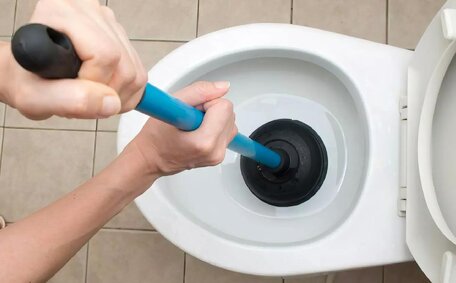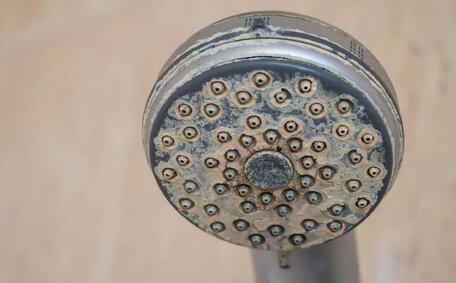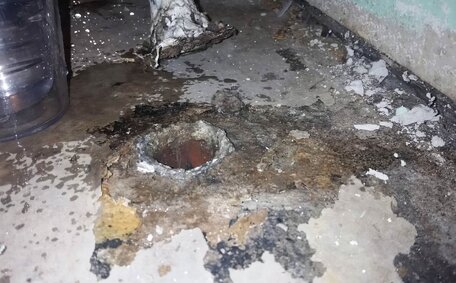Introduction to Pipe Relining
Trenchless sewer pipe relining renews damaged sewer pipes efficiently, sidestepping the need for complete replacement. The relining process inserts epoxy resin into the existing pipe, effectively creating a new, stable pipe within the original. The resin cures to form a smooth, protective barrier that restores function and flow.
Pipe relining offers numerous advantages over traditional pipe replacement methods. This minimally invasive technique avoids the disruption of floors, driveways, or gardens. Opting for a pipe reline can take less time and prove more durable over the long term than full pipe replacement.
Here at Emu Plains Plumbing, we are leaders in delivering extensive pipe relining Sydney-wide, ensuring superb plumbing services for your property in Western Sydney and neighbouring locales. Our licensed and insured team is highly skilled in restoring your drains, sewers, and pipes to optimal condition.
Pipe Size and Dimensions
The size and length pipe measurements are pivotal elements in figuring out the pipe relining cost. Precise measurements of the pipe’s diameter and length are vital to determine the necessary quantity of epoxy resin.
Relining 100 metres of 150mm diameter sewer line requires approximately 2 x 20kg drums of epoxy resin, totalling about $2000 in materials. Labour costs are influenced by access to the pipe and are normally around $30 per metre.
For that job, the approximate total cost of pipe relining would be $4000.
Larger diameters and lengths of pipe escalate relining costs due to the greater quantity of materials and time involved. Damaged sections, pipe deterioration level and number of junctions or bends also contribute to pricing.
Pipe Material
The most common type pipe being encountered in residential and commercial properties are clay, concrete, PVC (polyvinyl chloride) plastic, copper, cast iron, and galvanised steel. Each material has different cost pipe relining implications when it comes to relining.
Relining 100 metres of 150mm concrete pipe generally costs around $4500. The same job for PVC pipe which would be approximately $3500. This is because concrete pipes tend to have more damage and mineral deposits that need extensive cleaning and preparation beforehand.
In contrast, PVC and other plastic pipes have smooth surfaces that simplify installation of the epoxy resin. Moreover, high-quality pipe relining can enhance pipe strength beyond that of PVC, offering a resilient choice due to the durable epoxy barrier. This provides excellent long-term value compared to full replacement.
Pipe configuration and accessibility also factor into project costs, irrespective of the pipe material. Our team conducts thorough on-site assessments of pipe conditions to provide accurate relining quotes.
Extent of Damage and Accessibility
The severity of existing damage plays a major role in the complexity and overall cost of relining your plumbing system. Minor impairments such as small cracks or leaks can be rectified promptly without much added expense and thus cost your pipe relining budget less. However, major issues like extensive corrosion, collapsed sections, tree roots, and addressing blocked pipes how they contribute to obstructions require comprehensive cleaning and preparation, adding to the expense.
Accessing damaged pipes also affects pricing. Relining jobs under driveways or buildings are simpler than dealing with small, twisted pipes hidden behind walls or beneath landscaping. Tight access points make it harder to thoroughly clean the pipe and fully install the resin liner, lengthening your pipe relining job.
As a guide, minor damage to easily accessed 150mm pipes would add approximately $500-800 onto our standard per metre pricing. Major damage or tricky access could add $1200+ per 10 metres relined. Every property presents unique challenges – here’s what need to be assessed: our team evaluates all variables to provide accurate quotes.
Relining Method
There are two main methods for relining pipes – Cured-In-Place Pipe Lining (CIPP) and epoxy pipe relining. CIPP involves installing a resin-soaked felt liner inside the damaged pipe and curing it in place with hot water or steam. Epoxy relining uses a two-part epoxy resin that is brushed or sprayed directly onto the interior pipe surface.
Epoxy pipe relining tends to have lower material costs compared to CIPP liners.
Epoxy relining success is dependent on the technician’s expertise to ensure it is properly applied.
CIPP relining has higher upfront material expenses but generally greater long-term durability as the resin laminate is closely monitored and calibrated during installation. The materials are also inert once cured eliminating off-gassing hazards. Recent advancements like centrifugally cast liners and reinforced polymer resins have further enhanced strength while reducing overall CIPP costs.
Our specialists craft tailored pipe relining solutions, combining epoxy and CIPP techniques to match your requirements. We assess your pipe type, damage extent, and site accessibility to recommend the ideal trenchless relining solution for your needs.
Contractor Experience and Pricing
When choosing your plumber for pipe relining, it’s crucial to consider their industry experience. Companies adept in trenchless pipe lining will boast extensively trained technicians equipped with cutting-edge gear to execute professional, enduring repairs.
Ask potential contractors specific questions like:
- How long have you offered pipe relining services?
- What epoxy resins and CIPP liners do you use?
- Are your technicians fully certified and licenced?
- Can you provide examples of previous pipe relining projects?
Established experts like Emu Plains Plumbing are recognized for professionally imparting extensive knowledge. We use Brawoliner for the best pipe relining material in the industry, to ensure durable fixes with transparent pricing.
Our detailed quotes provide you with the final cost, accounting for all pipe variables while remaining highly competitive. We also offer warranty on all labour and materials. Check licences, insurances and past project reviews before committing to any service provider for your home.
Geographic Location and Site Conditions
The geographic location of your property plays a significant role in determining pipe relining costs. Factors like regional pricing variances, difficult site access due to infrastructure constraints, and local council regulations all contribute to pricing.
In Western Sydney, relining costs are generally more affordable than in central Sydney, reflecting lower overheads. Properties with intricate urban infrastructure could face extra costs due to the need for specialised access techniques and equipment.
Additionally, local council drainage regulations can influence relining costs. Special drainage permits or traffic management may be required when working on street-facing pipes or stormwater systems connected to council assets. These can include additional fees.
At Emu Plains Plumbing, our intimate knowledge of Sydney’s varying geographies allows us to accurately account for all location-specific factors in our competitive quotes. We work closely with customers and councils to deliver compliant, lasting solutions.
Cost Comparison to Traditional Repairs
Pipe relining delivers considerable cost savings compared to conventional repair methods such as spot repairs or complete replacement. Trenchless pipe relining rejuvenates your sewer pipes internally, significantly extending their life without the need for invasive repairs such as jackhammering, excavation, and structural work.
To illustrate how much does the savings amount to, let’s compare options to fix 10 metres of 150mm damaged sewer pipe. Traditional open trench replacement would require you to dig up areas to access pipes, cutting out damaged sections, laying new pipes, backfilling the trench and restoring surfaces. This could cost upwards of $5000+ in labour and materials.
Alternatively, evaluating the expenditure for a pipe relining project would rejuvenate the pipes to better than new condition for around $3000, offering over 40% in savings. The project would also be completed much faster with minimal surface disruption. No landscaping, driveways or concrete would be damaged either.
Although relining is cost-effective, scenarios where pipes are near total collapse may still require a full replacement. Our expert team assesses all variables of your pipe damage to recommend the most prudent and cost-effective solution.
Long-Term Value and Warranties
The long-term savings and advantages offered by trenchless technology are critical to the overall value of pipe relining. While the initial investment may be higher than spot repairs, a professionally installed epoxy or CIPP liner will often outlast the lifetime of the original pipes.
Emu Plains Plumbing provides comprehensive warranties on labour and materials, ensuring satisfaction and peace of mind. Our advanced epoxy resins and installation methods ensure our relining services are reliable, carrying a recommendation for a minimum 50-year guarantee.
Factoring lifespan into the equation, pipe relining through our expert team delivers excellent ROI while enhancing the safety, structural stability and functionality of your home’s plumbing and drainage systems, ensuring your pipes remain robust and reliable. The negligible surface disruption is an added bonus – driveways, landscaping and indoor spaces remain undamaged.
Pipe relining demonstrates its flood prevention efficacy by halting the progression of small leaks or cracks into larger, more expensive problems. Guard against the risk of leaks as they can flood your home, by investing in our durable, long-term relining solution. Contact our team at Emu Plains Plumbing to learn more about pipe relining and its value-enhancing benefits.






